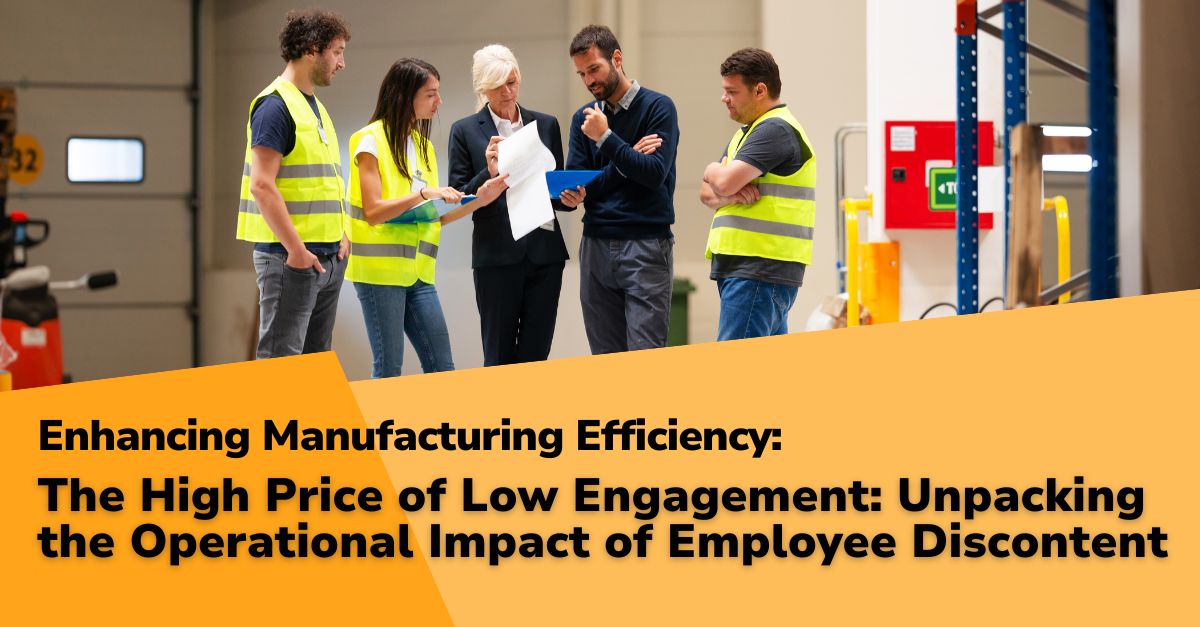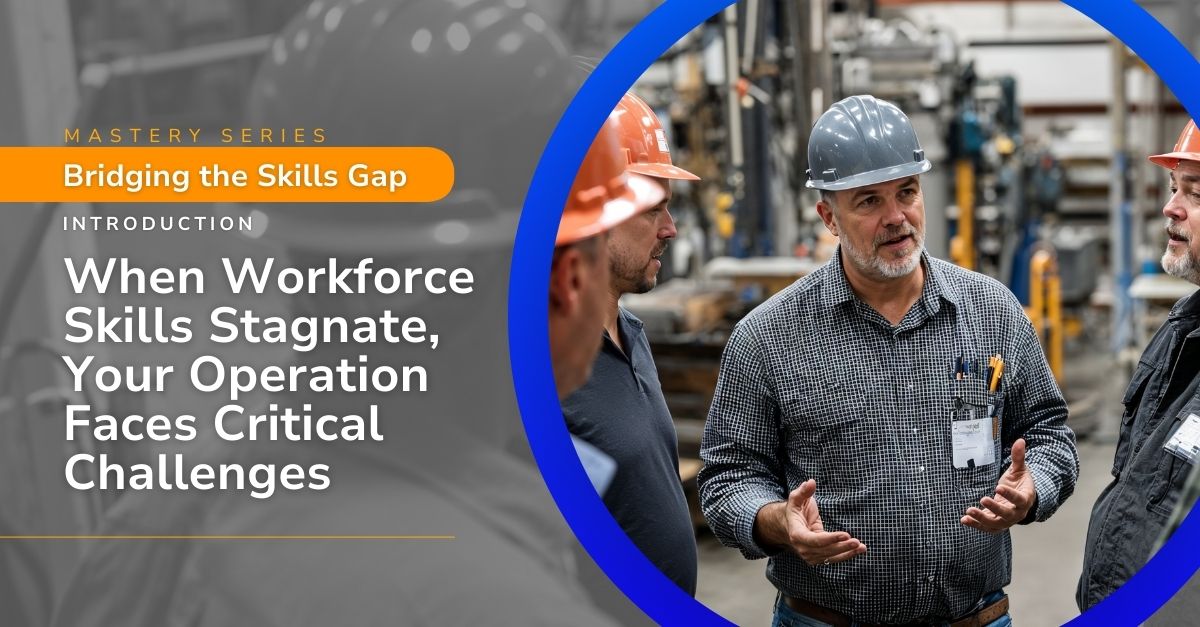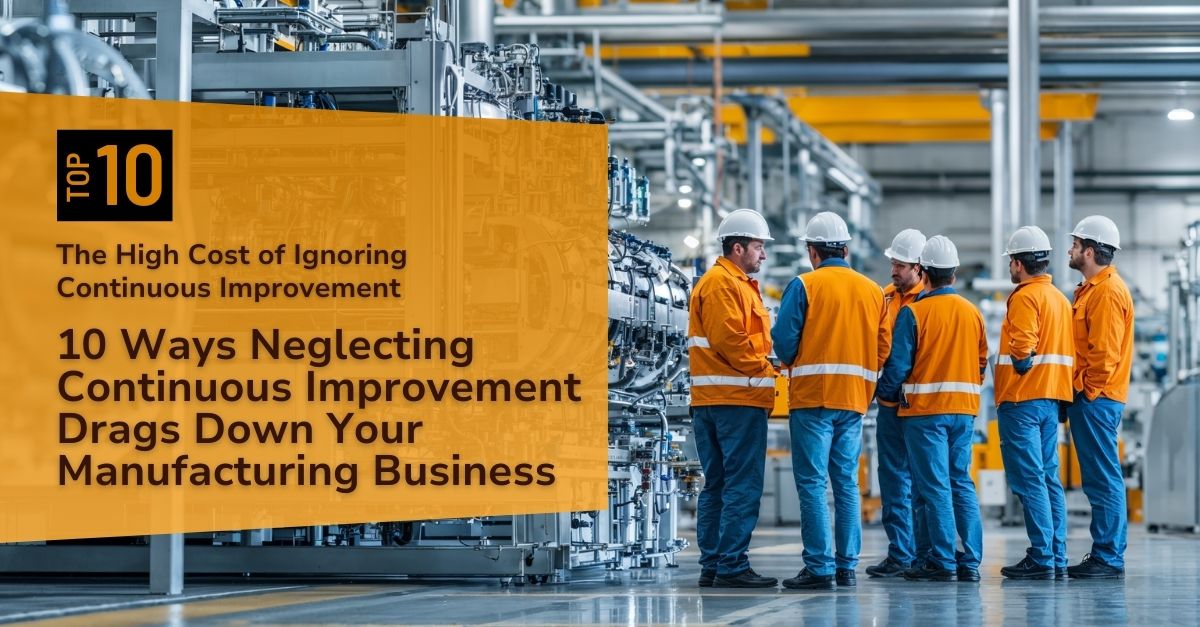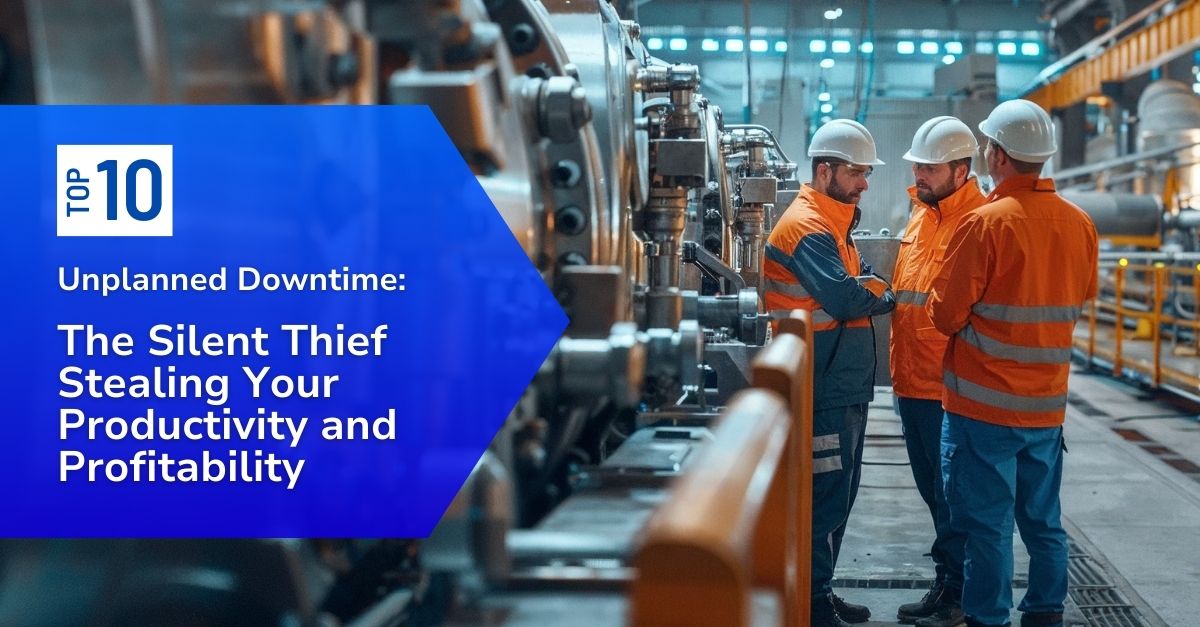
A Management Operating System (MOS) isn’t just about dashboards and KPIs. At its core, it’s the structure that keeps your operation aligned, on pace, and accountable.
But if that structure doesn’t include support for the human side of the business, the people actually running your processes, things start to slip.
In this seventh part of our Enhancing Manufacturing Efficiency Mastery Series, we’re focusing on something too many leaders overlook: how a weak or misaligned MOS contributes directly to low workforce engagement and morale.
When your MOS isn’t supporting engagement, the symptoms show up fast. The floor gets quiet. Performance slides. Frustration builds. And leadership starts losing credibility.
Here’s what that looks like when it plays out across your operation:
1Decreased Productivity:
Disengagement kills momentum. When people don’t see the value in their work, or don’t feel like their effort makes a difference, they check out. Productivity slows not because people don’t care, but because the system hasn’t given them a reason to. And over time, the gap between actual output and expected output keeps growing.
The fix: A high-functioning MOS helps teams stay on pace by making expectations clear, tracking results daily, and ensuring leaders follow up when issues arise.
2Quality Compromises:
When engagement drops, so does the level of care. Employees may skip inspections, rush through key steps, or stop flagging defects altogether. In some cases, it’s because they don’t feel empowered to speak up, in others, they just don’t think anyone’s paying attention.
The fix: A well-run MOS builds in quality checkpoints, feedback loops, and visual controls that keep quality top of mind, even on the busiest days.
3Increased Absenteeism:
Disengaged employees are more likely to miss shifts, call out unexpectedly, or disappear without notice. It’s a sign that the workplace has become a source of stress or frustration, not purpose. One missed shift becomes two, and now your leads are scrambling to reassign work and stay on target.
The fix: When people know where they stand, understand their goals, and feel like they’re part of a functioning system, they’re more likely to show up and give a full effort.
4Higher Turnover Rates:
When morale stays low, people start looking for the exit. And with every departure, you lose experience, institutional knowledge, and hard-earned skills. The cost of replacing even one experienced team member adds up fast, in training hours, overtime to cover the gap, and the productivity dip that follows.
The fix: A strong MOS supports retention by creating a stable, fair, and growth-oriented environment where people feel like they can succeed.
5Poor Team Dynamics:
Low engagement doesn’t just affect individuals, it fractures teams. You’ll see more finger-pointing, fewer handoffs done right, and less support across roles. The team starts working in silos, and productivity drops even when staffing levels stay the same.
The fix: Your MOS should make collaboration part of the daily rhythm, through structured shift handoffs, team huddles, and clear role expectations.
6Safety Risks:
Engaged employees are more likely to follow safety protocols, report near-misses, and stop work when conditions are unsafe. Disengaged employees? They’re more likely to skip PPE, cut corners, or just stop noticing hazards altogether.
The fix: A people-centered MOS prioritizes safety by embedding it into daily routines, supervisor checklists, and team accountability structures.
7Inefficient Resource Utilization:
When teams aren’t engaged, waste creeps in. That might mean running machines inefficiently, letting scrap pile up, or over-ordering materials to cover for process gaps. Disengaged employees are less likely to problem-solve, they just do what’s easiest to get through the day.
The fix: A robust MOS keeps everyone focused on efficient operations, with visual controls, performance metrics, and support for real-time adjustments.
8Resistance to Change:
Even when a process change is for the better, disengaged teams are quick to resist. Whether it’s new software, revised work instructions, or a production schedule change, they’re more likely to dig in their heels if they don’t trust leadership or believe the change will stick.
The fix: When your MOS includes regular communication, coaching, and involvement from the floor, change becomes something people help drive, not something that’s done to them.
9Reduced Creativity and Innovation:
People closest to the work often have the best ideas for improvement. But when engagement is low, that feedback dries up. Operators go quiet. Teams stick to “what we’ve always done.” You lose your best shot at innovation, the collective brainpower of the people running the show.
The fix: Your MOS should create formal and informal channels for frontline ideas, and ensure those ideas are acknowledged, tested, and rewarded.
10Impact on Leadership Credibility:
The longer a team operates in low morale, the less trust they have in leadership. Even well-intentioned changes are met with skepticism. Supervisors struggle to influence behavior. And eventually, leaders stop leading, they just manage the chaos.
The fix: An effective MOS gives leaders tools to coach in real time, follow up consistently, and drive the behaviors that rebuild trust and credibility.
Conclusions for Manufacturing Operations Leaders
As we unravel the complexities of employee engagement in manufacturing settings, it becomes increasingly clear that the health of an organization’s human element is as critical as its mechanical counterparts.
The ripple effects of low engagement, or complete disengagement, reach far beyond individual performance, permeating the very core of operational efficiency and effectiveness.
For manufacturing leaders, the path forward involves recognizing the multifaceted impacts of low employee morale and actively developing strategies to enhance engagement.
At POWERS, we don’t just diagnose engagement issues, we help manufacturers solve them by rebuilding the systems and routines that support performance at every level.
Here’s what that looks like:
🔧 MOS That Drives Engagement
We assess and realign your Management Operating System to make sure it’s supporting, not suppressing, team performance. That includes defining expectations, aligning routines, and embedding feedback at the point of execution.
📲 Real-Time Tools with DPS
Our Digital Production System (DPS) gives your supervisors a clear line of sight into what’s working, what’s not, and who needs support. It lets them take action in real time, instead of waiting until next week’s review.
👷 Leadership That Connects
We equip frontline leaders to do more than just enforce rules. Through structured coaching, practical routines, and visible follow-up, we help them lead in a way that builds trust and lifts morale.
🧩 Tailored Solutions, Not Templates
Every facility has its own challenges, and strengths. We work with your team to understand where engagement is breaking down and implement targeted changes that deliver immediate, measurable improvement.
With POWERS, manufacturers can navigate industry complexities more effectively, enhancing both efficiency and profitability while creating a positive, adaptable work environment.
Begin your path to superior efficiency, quality, and employee engagement with POWERS. Contact our expert team at +1 678-971-4711 or via email at info@thepowerscompany.com.
Continue Reading from this Mastery Series
- Part 1 - Identifying Key Inefficiencies in the Absence of a Management Operating System
- Part 2 - Top 10 Pitfalls: Lack of an MOS Derails Productivity
- Part 3 - Top 10 Quality Issues at Risk Without a Robust Management Operating System
- Part 4 - The High Cost of an Ineffective Management Operating System
- Part 5 - Without an Optimized Management Operating System, Decision-Making is Severely Impaired
- Part 6 - Scaling Challenges of an Inadequate Management Operating System
- Part 7 - The High Price of Low Engagement: Unpacking the Operational Impact of Employee Discontent
- Part 8 - Safeguarding Success: Decoding the Impact of Compliance and Safety Issues
- Part 9 - Examining the Cost of a Slow Response to Market Shifts
- Part 10 - Charting Success: Understanding the Costs of Losing Competitive Advantage







